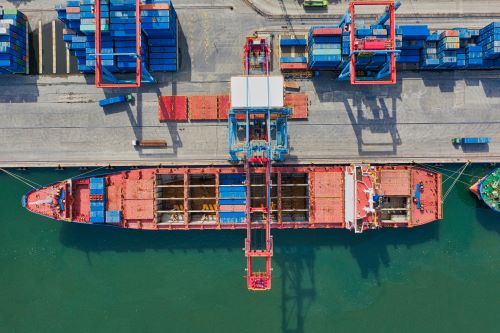 Tony Gibson is the former Chief Executive of the Port of Auckland and is currently on trial in the first prosecution of its kind over the death of Pala'amo Kalati who was killed in 2020 when a container fell and crushed him while he was working at the Port of Auckland.
Tony Gibson is the former Chief Executive of the Port of Auckland and is currently on trial in the first prosecution of its kind over the death of Pala'amo Kalati who was killed in 2020 when a container fell and crushed him while he was working at the Port of Auckland.
Mr Gibson has been charged over Mr Kalati's death under the beefed-up Health and Safety at Work Act (HSWA) that was implemented after the Pike River mining disaster.
The Port of Auckland has already been fined after admitting it was responsible for the death of Mr Kalati.
The Whakaari/White Island eruption in 2019 resulted in the deaths of 22 people on the island managed by Whakaari Management Limited (WML). The Whakaari/White Island health and safety prosecution came to an end earlier this year with a number of defendants having pleaded guilty or been found to be guilty by the District Court under the HSWA.
Like Mr Gibson, Whakaari Management’s directors were also personally charged under the HSWA for failing to exercise the necessary due diligence to ensure WML complied with its health and safety duties.
In an oral ruling of the District Court on 5 September 2023 the charges against the directors as officers of WML were dismissed. The Court found that there was insufficient evidence to enable the court to assess whether the directors should be held personally liable.
The Court said that WorkSafe had not obtained copies of board or management meeting minutes from WML relating to its internal decision-making. This was largely because WorkSafe had initially recommended that no enforcement action be taken against the directors.
An officer under the HSWA is a person who occupies a position that allows them to exercise significant influence over the management of the business, such as a Chief Executive.
Officers must exercise due diligence to make sure that the business complies with its health and safety duties. The duty does not require officers to be directly involved in the day-to-day management of health and safety. However they are required to take reasonable steps to ensure the business meets its health and safety obligations to its workers and the public.
In smaller businesses, officers are more likely to have a hands-on role in health and safety. They are usually more directly in contact with workers and may oversee health and safety practices and investigate incidents. Read more....
Officers of larger businesses cannot rely on the fact that their business has a health and safety management system in place. They need to understand how it works, and take steps to make sure it is working.
The charges brought against the directors of WML indicate that the due diligence duty owed by officers of a business are personal to each officer and will be considered on a strictly individual basis. In the case of directors (as officers of a business), the court will be reluctant to draw inferences from the board acting as a whole; there must be evidence attributing responsibility or decision-making for a director to be held personally accountable.
Mr Gibson was undoubtably an officer of the Port of Auckland. He resigned in May 2021 citing "persistent and sometimes personal attacks". But his resignation came after an independent health and safety review found the need for significant changes. It found systemic problems with risk management and organisation. The review recommended several changes including new requirements for the Chief Executive to prioritise health and safety over profit and productivity along with improving trust and communication between management and staff. It also recommended a new health and safety manager who would report directly to the Board and Chief Executive.
Subsequently, another stevedore at the Port of Auckland died in April 2022 after being crushed by a container. That accident, and a further one at Lyttleton Port, were separately investigated by the Transport Accident Investigation Commission (TAIC) which released its findings in a joint report in October last year.
The Chief Investigator of Accidents at TAIC, Naveen Kozhuppakalam, said the report identified broad safety issues for the whole stevedoring sector. He said that neither company monitored how well its employees were using rules and guidelines to manage workplace risks. "People become desensitised to risk, they take shortcuts or drift away from following rules, some of which are thought to be impracticable”.
In the past decade, New Zealand has had 18 deaths and 397 reported injuries in its ports. TAIC Chief Commissioner Jane Meares said stevedoring has the second highest rate of fatalities of any industry in New Zealand.
The Port of Auckland company has already pleaded guilty and has been fined over Mr Kalati’s death. Mr Gibson, as an officer under the HSWA at the Port, was certainly in a position that allowed him to exercise significant influence over the management of the business. If convicted, Mr Gibson will be the first individual to be held accountable under the HSWA – a timely reminder for directors and senior management to take health and safety seriously. Read more....

